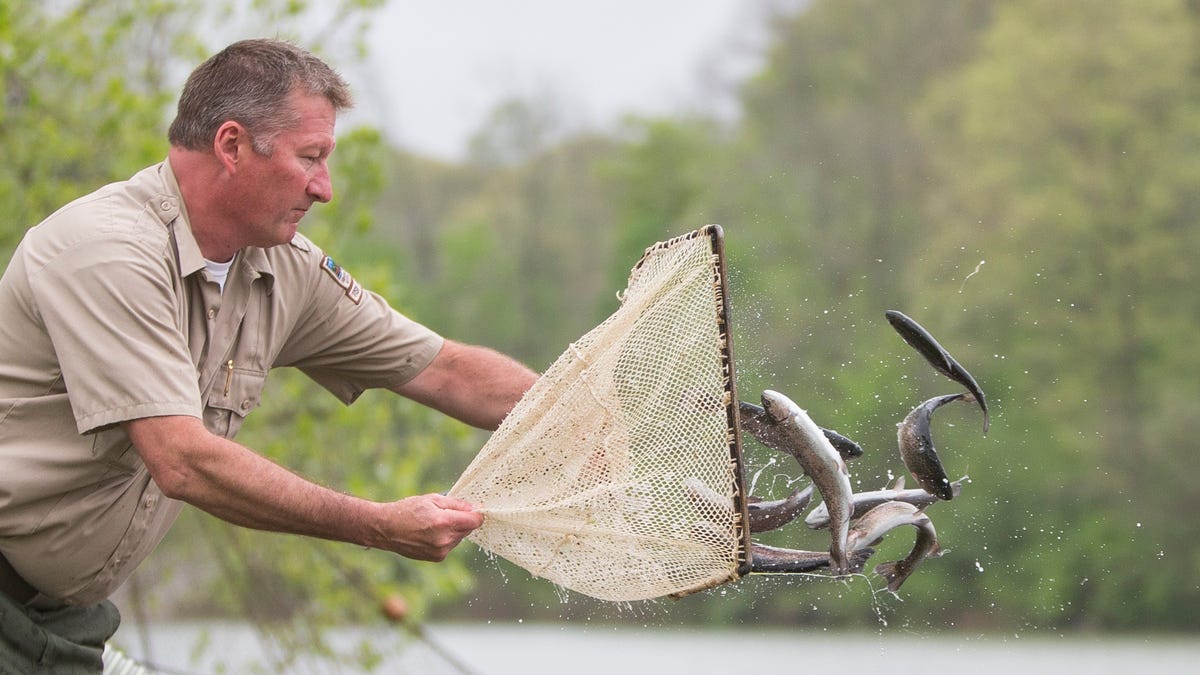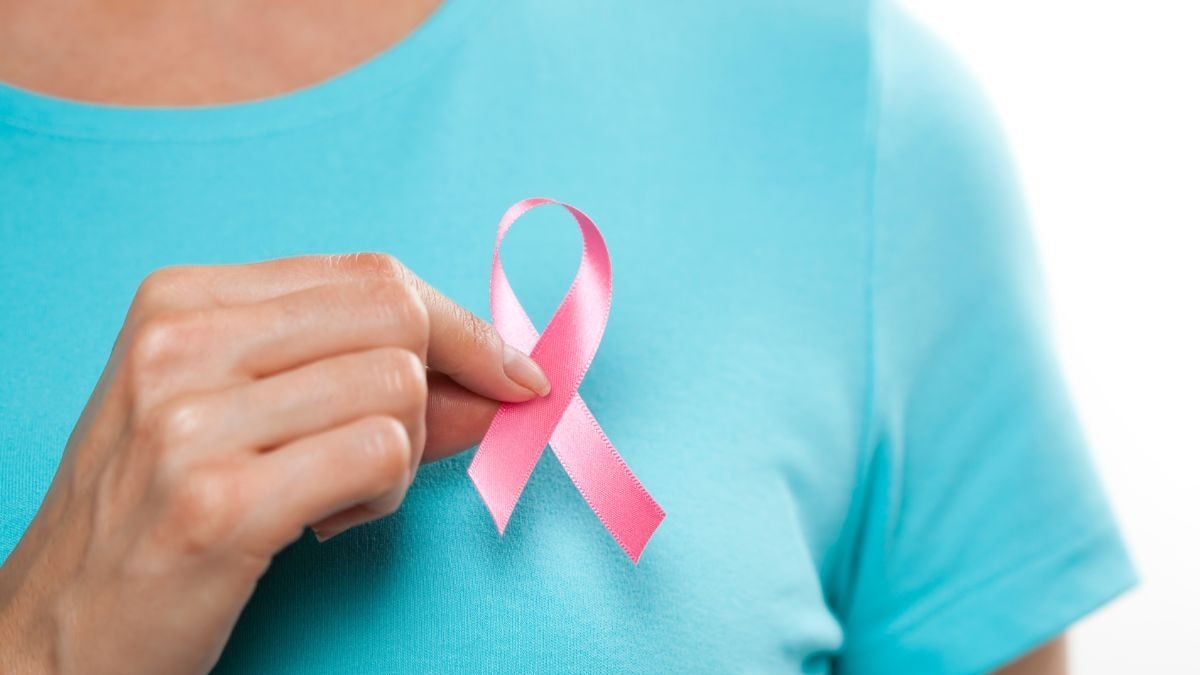Indiana
Indiana environmentalists, manufacturers at odds over bill to protect toxic PFAS chemicals – Indiana Capital Chronicle

Environmental advocates sounded alarms at the Indiana Statehouse on Monday over a bill that would change the definition of toxic PFAS chemicals to exempt those which Hoosier manufacturers want to keep using.
HB 1399 seeks to carve out more than 5,000 “forever chemicals” from being defined as such by the state and its environmental rules board.
That means chemicals deemed harmful in other states would no longer carry the same designation in Indiana. Critics said the legislation could allow products that contain the toxic chemicals to be “wrongly” labeled as “PFAS-free.”
The bill was heard in the Senate Environmental Affairs Committee and drew nearly three hours of testimony and discussion. A vote was not held Monday but could take place next week.
PFAS are used to make a variety of nonstick, waterproof and stain-resistant products like cookware, cosmetics, carpets and clothing. Among other things, exposure to the chemicals has been linked to kidney cancer, problems with the immune system and developmental issues in children.
Sen. Mark Messmer, R-Jasper, said “it’s not appropriate” to regulate all PFAS the same, though.
“We must be mindful that a number of industries utilize PFAS chemistries,” he said, mentioning the mining, building construction, drug manufacturing, biotech, energy and technology sectors as examples.
“The bill is designed to preserve the potential uses for these products and uses while focusing on future potential regulatory efforts on the PFAS chemistries that are of potential concern,” Messmer continued.
Proponents of the bill, which includes many in the chemical manufacturing industry, say the change is needed to preserve uses of PFAS in “essential” items like lithium batteries, laptop computers, semiconductors, pacemakers and defibrillators. Even so, state regulators have yet to propose a prohibition on those uses.
“If the bill doesn’t pass, nothing happens — we go back to business as usual. But if it does, it opens up the door to a lot of potential issues,” said Marta Venier, a professor and environmental chemist at Indiana University. “Think about the broader picture and the long term effects that passing the bill can have. We’re thinking about the benefits of bringing a few more jobs. But let’s also think about the hidden costs of the use of PFAS, which are the health effects that, actually, taxpayers are paying through all the costs of remediation of water.”
Exposing Hoosiers to ‘dangerous’ chemicals
The proposal seeks to proactively exempt the chemicals in case state or federal regulators try to ban them in the future. It previously passed out of the House in a 64-30 vote, along party lines.
The U.S. Environmental Protection Agency (EPA) defines PFAS, per- and polyfluoroalkyl substances commonly called “forever chemicals,” as “widely used, long lasting chemicals, components of which break down very slowly over time” — to the tune of thousands of years.
During production and use, PFAS can migrate into the soil, water and air. Because of their widespread presence, many PFAS are found globally in the blood of people and animals. The chemicals are also present at low levels in a variety of food and consumer products.
But numerous scientific studies have shown that exposure to some PFAS is dangerous to human and animal health, causing reproductive issues, immune system suppression, organ damage and endocrine disruption.

Venier said Indiana already has a “perfectly good definition of PFAS.” Changes proposed in the bill “have not been approved by the scientific community.”
“We want batteries, we want medical devices. Yes, we all want all of that. We are not saying that we should remove (PFAS chemicals). We’re just saying to not change the definition of PFAS,” Venier said, noting lawmakers could instead grant exemptions for particular PFAS chemicals and uses.
University of Notre Dame professor Graham Peaslee, recognized in Monday’s committee as another nationally recognized PFAS expert, further warned that PFAS chemicals are “very hard to remove from the environment once they’re there.”
PFAS “hotspots” — created when manufacturing activities leach chemicals into local water sources — have “tremendous” cleanup costs that are largely borne by taxpayers, he said.
“If this bill has its intended purpose … we’ll get another company here that is trying to avoid the wastewater regulations in California by moving to Indiana, bringing us some jobs. But what will that cost us?” Peaslee asked. “It will cost us if they put more pollution into the water or into our irrigation water or into our foods. It will cost us not only public health … but it will cost us dollars to clean it up.”
“At the moment, we are going to need more dollars than we’ve ever spent on any other cleanup,” he continued. “Think about that money we’re spending on lead right now. … Any more PFAS we put into the state will take forever to get out. It just doesn’t go away.”
Any more PFAS we put into the state will take forever to get out. It just doesn’t go away
– University of Notre Dame professor Graham Peaslee
Although most who testified on the bill — both for and against — agreed that “essential” uses of PFAS should be exempt until better alternatives are available, environmental advocates argued for lawmakers to adopt specific exemptions in the current law, rather than changing the definition of thousands of other PFAS chemicals.
The bill’s author, Rep. Shane Lindauer, R-Jasper, said earlier in the legislative session that the bill is written in a way so lawmakers don’t have to add exceptions to the law every year.
But Rep. Maureen Bauer, D-South Bend, maintained “there is an urgent need to reduce human exposure to PFAS.”
“Other states are looking for efficient and effective ways to reduce the use of toxic chemicals to protect the public’s health, led by firefighters, farmers and families with children. Indiana is going to do the opposite,” said Bauer, who last year led a successful effort to pass legislation aimed at protecting firefighters from PFAS chemicals used in protective equipment.
Sen. Shelli Yoder, D-Bloomington, added that the bill appears to be a solution seeking a problem.
Industry wants continued PFAS use
But Andrianna Moehle, with the Indiana Manufacturers Association, said there aren’t good alternatives for PFAS in manufacturing essential items like medical devices and pharmaceuticals, as well as in the automotive and steel industries.
“This definition (in the bill) ensures a robust, stable and domestic supply chain remains intact,” she said.
Moehle noted, too, that although Indiana is unlikely to ban PFAS chemicals, “it’s a given” that the federal government will require states to regulate PFAS, “and we want to be prepared.”
“Manufacturers prefer to operate in environments of certainty and predictability because we plan for investments years down the road. And our investments consist of technology and facilities that are not able to be moved easily, therefore making regulatory certainty and predictability of utmost importance and the reason that we need this bill now,” Moehle said. Having this definition in place ensures that future regulations use the proper definition without unintended consequences.”

Three representatives from the American Chemistry Council (ACC) — an industry trade association for chemical companies — also testified Monday in support of the bill. They maintained a focus on “future regulatory efforts” of select PFAS chemicals “that have been shown to cause adverse health effects.”
“Not all PFAS chemistries are the same, and therefore, it’s not appropriate to regulate them all the same,” said Mathew Norris, speaking on behalf of the ACC. This bill strikes the right balance by focusing on those PFAS chemistries that are most likely to cause adverse health effects, while preserving products and uses that are vital to Hoosiers and Hoosier industries.”
Steve Risotto, also with the chemistry council, said universally, not all PFAS chemicals pose risks to humans “because you are talking about thousands of chemistries, many of which don’t break down in the body.”
He clarified that the group does not, however, “advocate widespread release of these products.”
“We encourage our companies to control their releases to the greatest extent possible … because it is the right thing to do,” Risotto said.
The bill has also received support from the Indiana Chamber of Commerce and Indiana corn and soybean growers.
GET THE MORNING HEADLINES DELIVERED TO YOUR INBOX

Indiana
18-year-old music prodigy earns Master's Degree at Indiana University

An 18-year-old music prodigy is making history this year.
Tiara Abraham earned her Master’s Degree from Indiana University on Friday. The accomplishment makes her the youngest to do so in 2024 across all IU campuses statewide, and up next is her doctorate.
“Today has been a whirlwind of emotion. It’s been full of joy,” said Abraham.
WRTV’s Naja Woods
The teen graduated from Indiana University’s Jacobs School of Music with a master’s degree in music of voice. She accomplished it all before even getting her driver’s license.
“A lot of hard work and perseverance as with many other graduates. That’s how we ended up here graduating, and I just feel very proud of myself,” she said.
Dr. Taji Abraham

The California teen moved across the country with her mom at just 16 to begin the IU master’s program in music, one of the top schools in the world.
“I started college, community college, at 7 years old, so I’ve definitely gotten used to being the youngest in the classroom,” she said.
Now, she’s the youngest person to earn the degree across all IU campuses in 2024, and she did it with a 4.0 GPA throughout her academic career.
WRTV’s Naja Woods

“We’re extremely proud of her. At such a young age finishing a master’s; that’s amazing. This is her time,” said her dad, Bijou Abraham.
“It’s just that looking back over the last two years, the challenges she had and how she persevered it. She’s brave and she’s worked hard,” added her mom Dr. Taji Abraham. “Now it’s time for her to celebrate and we’re just happy to see that success.”
Tiara Abraham became a Mensa member at age 4, began college courses at age 7, and celebrated her Sweet 16 with an undergraduate degree from UC Davis in California.

Dr. Taji Abraham
It’s the same school where her older brother Tanishq earned his doctorate at age 19.
For Abraham, it’s not just about hitting the textbooks. The prodigy also has a passion for music. She began classical voice training at just 7 years old.
“Ever since then, I’ve just been performing around the world. I’ve performed at Carnegie Hall, and internationally in Italy and the Vatican. It’s been such a joy to be able perform because it’s something I truly enjoy,” said Abraham.
Although the teen is used to being the youngest in the room, it isn’t always easy doing so when it comes to classical music.

Dr. Taji Abraham
“A lot of the times, some people will kind of dismiss me because they say I’m too young,” she said.
The teen hasn’t let that discourage her from pushing to learn more throughout the years.
“She wants to learn. She wants to grow. She wants to be right, we have at least four or five languages. We have to be able to sing in like French, Italian, German, English and sometimes Spanish,” explained Patricia Stiles, an IU professor of music (Voice) who’s worked with Abraham for the last two years.
“She just wants it to be good; she wants to do the best she can,” she added.
Now, the teen has her sights set high for an even brighter future.
“I’m going to stay here at Indiana University for my doctorate.”
WRTV’s Naja Woods

After that, the teen wants to continue breaking down barriers on the big stage.
“My dream job is to perform around the world in established opera houses and just make people happy with my voice,” she said.
“I truly believe in the power of music, and I’m blessed with a beautiful voice, and I just want to make use of that,” she said.
Abraham has been invited to sing at several commencement ceremonies at many reknown places over the years. She will sing the national anthem at IU’s undergrad ceremony on Saturday.
This article was originally published by Naja Woods for Scripps News Indianapolis.
Indiana
We are ready to hear from you anglers and hunters

We are ready to hear from you hunters and anglers.
South Bend Tribune sports is beginning a new Outdoors feature, focused primarily on hunting and fishing stories/news and photos.
We want to hear about your fishing and hunting adventures and see photos of those big or unusual catches and harvests.
Share those stories and photos at sports@sbtinfo.com or gbell@sbtinfo.com.
Indiana seeks input on deer hunting rule changes. Plus hike, clean up and parade into May.
Trout season begins in Indiana’s stocked streams. And large white trilliums in full bloom.
When is free fishing day in Indiana?
Indiana’s first free fishing day is coming up on Sunday, May 12.
Indiana residents do not need a fishing license or a trout/salmon stamp to fish in the state’s public waters. It’s a perfect day to bring your family and friends to join in fishing fun. All others rules such as seasons, bag limits and size limits apply. Find a location to fish near you, using the Indiana DNR Where to Fish Map at https://www.in.gov/dnr/fish-and-wildlife/fishing/where-to-fish-interactive-map/
Indiana Trout season is open
Trout season for inland streams in Indiana opened on April 27th and runs through the end of December. The Indiana DNR had planned to stock nearly 63,000 rainbow and brown trout across 35 bodies of water. Anglers should be sure to get their trout stamp. There is no closed season for taking trout from inland lakes. All licences/stamps can be purchased through the Indiana DNR.
Wild turkey season in Indiana has another week
The Indiana spring wild turkey hunting season continues until May 12. The bag limit during the spring is one bearded or male turkey.
Wild turkeys may be hunted from one half hour before sunrise to sunset.
To hunt wild turkey during the spring season, a valid spring turkey hunting license and Game Bird Habitat stamp privilege are required. Those who have a lifetime comprehensive hunting, lifetime comprehensive hunting and fishing, or resident youth hunt/trap license can hunt wild turkey and do not need to purchase the Game Bird Habitat stamp privilege,
Licences can be purchased through the Indiana DNR.
Michigan elk and bear license applications on sale
Michigan Elk and bear license applications are on sale now through June 1. Hunters can increase their odds by picking up Pure Michigan Hunt applications while applying for bear and elk.
The Pure Michigan Hunt offers a chance at licenses for hunting elk, bear, spring and fall turkey and anterless deer and first pick at a managed waterfowl hunt area.
For more information about the Pure Michigan Hunt, or to apply, visit Michigan.gov/PMH. For more information or to apply for bear or elk licenses, visit Michigan.gov/Bear or Michigan.gov/Elk. You also can apply for all three anywhere hunting licenses are sold, or online at Michigan.gov/DNRLicenses or on the Michigan DNR Hunt Fish app.
Indiana Learn to Shoot event
The Indiana DNR will host a Learn to Shoot event on June 18 at Atterbury Fish & Wildlife area from 9 a.m. to 1 p.m. (ET). Shooters of all skill levels are welcome, but the course will be tailored towards those that are new to shooting and firearms.
Indiana Learn to Fish series
The DNR is also hosting a series of Learn to Fish events through May and June at various lakes throughout the state. Events include at Mother’s Day workshop, women’s intro to fishing, beginner catfishing and intro to fishing
Indiana
Pilot hurt in single-engine plane crash in northern Indiana

LAPORTE, Ind. (WISH) — A pilot received a minor injury in a monoplane crash Saturday evening in northern Indiana, the La Porte County Sheriff’s Office says.
Capt. Derek Allen of the sheriff’s office says the 1952 single-engine Mooney M18C crashed about 6:20 p.m. Saturday in a harvested farm field along County Road 850 East north of County Road 150 North.
That’s about 7 miles south of the St. Joseph County town of New Carlisle, and a half-hour drive west of South Bend in northern Indiana.
No additional information was immediately available about the crash.
Saturday’s crash of a small plane was at least the third in Indiana since Thursday.
-

 News1 week ago
News1 week agoFirst cargo ship passes through new channel since Baltimore bridge collapse
-

 World1 week ago
World1 week agoHaiti Prime Minister Ariel Henry resigns, transitional council takes power
-

 Movie Reviews1 week ago
Movie Reviews1 week agoAbigail Movie Review: When pirouettes turn perilous
-

 World1 week ago
World1 week agoEU Parliament leaders recall term's highs and lows at last sitting
-

 Politics1 week ago
Politics1 week ago911 call transcript details Democratic Minnesota state senator’s alleged burglary at stepmother's home
-

 Science1 week ago
Science1 week agoOpinion: America's 'big glass' dominance hangs on the fate of two powerful new telescopes
-

 Politics1 week ago
Politics1 week agoGOP lawmakers demand major donors pull funding from Columbia over 'antisemitic incidents'
-

 World1 week ago
World1 week agoHamas ‘serious’ about captives’ release but not without Gaza ceasefire

















